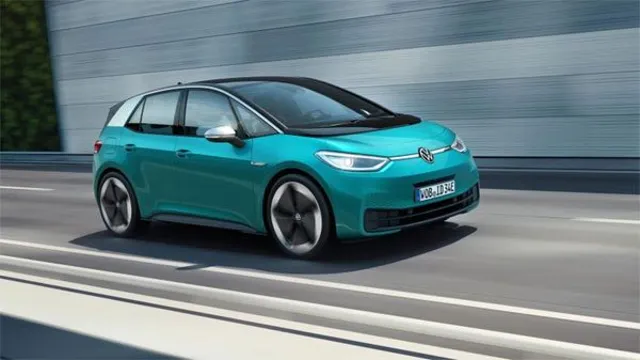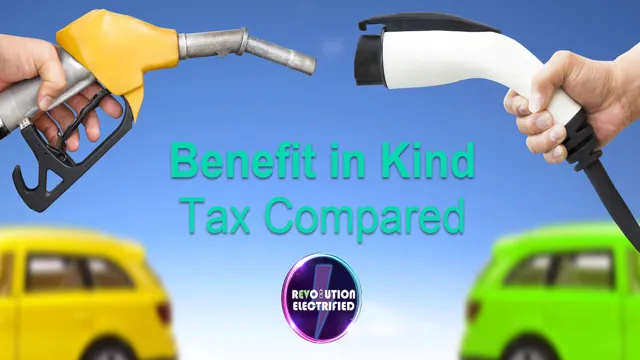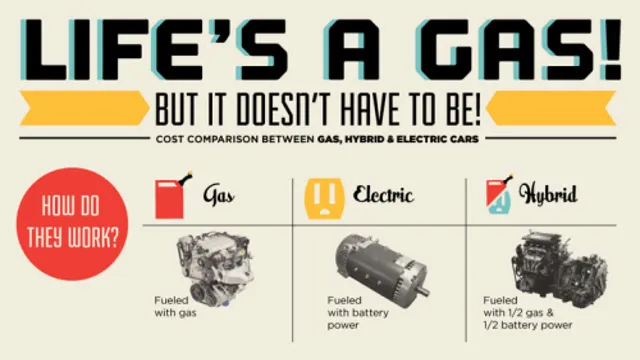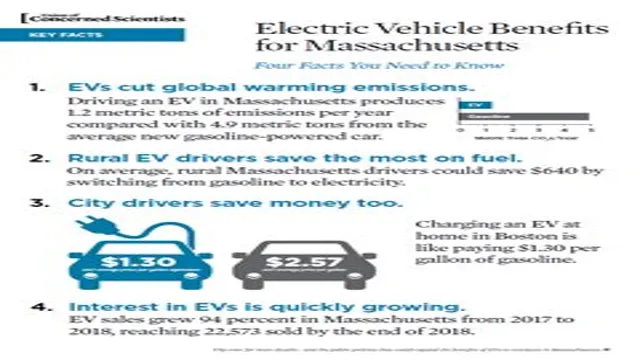Revving Up Your Savings: Exploring the Benefits in Kind Rates of Electric Cars
Have you heard about the Benefit in Kind (BIK) rates for electric cars? It’s a new tax policy implemented by the UK government to encourage businesses to switch to greener vehicles. But what exactly does this mean for you as an employee or employer? And how can you take advantage of this policy to save money and reduce your carbon footprint? Simply put, the Benefit in Kind rates for electric cars determine the tax that companies and employees need to pay on the use of an electric car as a company vehicle. The good news is that the BIK rates for electric cars are significantly lower than those for petrol or diesel vehicles, making them a more cost-effective and eco-friendly option.
For instance, the 2021/22 BIK rates for electric cars are set at 1% of the vehicle’s list price, while the rates for petrol and diesel cars range from 21% to 37%, depending on the CO2 emissions. This means that driving an electric car as a company vehicle can potentially save you thousands of pounds in tax each year. But the benefits of electric cars are not just limited to tax savings.
Electric cars are also cheaper to run and maintain than their fossil fuel equivalents, as they have fewer moving parts and require less frequent servicing. Plus, they emit no harmful pollutants, which means cleaner air for all. So, if you’re an employer looking to reduce your carbon footprint and save money on taxes, or an employee who wants to drive a more sustainable vehicle, now is the perfect time to consider an electric car.
With the BIK rates for electric cars at an all-time low, there’s never been a better opportunity to make the switch to a cleaner and greener future.
What are Benefit in Kind Rates?
If you’re considering an electric car as your next company car, you may have heard the term “benefit in kind rates” thrown around. Essentially, these rates refer to the amount of tax you’ll pay on the “benefit” of having a company car. The higher the value of the car, the more tax you’ll pay.
However, electric cars are often exempt or have lower rates due to their zero-emissions status and increased government incentives. For example, for the tax year 2021-2022, the benefit in kind rate for a zero-emissions electric car is 1% compared to 21% for a petrol or diesel car. This means that an electric car driver will pay significantly less tax than their fossil fuel counterparts, making it a more attractive option for company car schemes.
So, if you’re environmentally conscious and looking for ways to save on your tax bill, an electric car could be the perfect choice for you.
Definition and Calculation
Benefit in Kind Rates refer to the value assigned to any non-cash or non-monetary compensation provided to employees by their employers. The purpose of determining Benefit in Kind Rates is to properly reflect the value of employee benefits for tax purposes. The rates are calculated based on the market value of the benefit provided or the amount the employee would have to pay for the benefit if acquired independently.
For example, a company car provided to an employee for personal use is considered a taxable benefit, and the Benefit in Kind Rate is determined based on its market value. The rates are subject to change depending on the type of benefit provided and the current tax laws. It is important for employers to keep track of Benefit in Kind Rates to ensure compliance with tax regulations and to provide accurate information to their employees.
By providing non-monetary benefits, companies can increase employee satisfaction and retention, but it is equally crucial to maintain transparency and fairness in their implementation.
Importance for Employers and Employees
Benefit in Kind Rates can be essential for employers and employees alike. For employers, these rates refer to the value of benefits provided to employees in addition to their salary, such as company cars or private medical insurance. Calculating Benefit in Kind Rates can be crucial for organizations in terms of tax compliance and managing costs.
For employees, the importance lies in understanding the value of these benefits, which can often be overlooked. Knowing the Benefit in Kind Rates can help employees make informed decisions about their compensation package and negotiate effectively. Employers should also ensure that employees fully understand the value of these benefits, which can boost employee engagement and retention.
Therefore, taking the time to calculate and communicate Benefit in Kind Rates can have significant benefits for both employers and employees.
Electric Cars and Benefit in Kind Rates
If you’re considering purchasing an electric car for business purposes, then you need to understand how it impacts the Benefit in Kind (BIK) rates. BIK is essentially the tax paid by employees on any non-cash benefits provided to them by their employer—including cars. The good news is that electric cars are currently highly incentivized, with a BIK rate of 1% compared to petrol or diesel cars that have rates of up to 37%.
Not only will you save on tax, but you’ll also contribute to a healthier environment, as electric cars have zero tailpipe emissions. Additionally, the government offers grants and tax incentives for electric car purchases, further reducing the cost of ownership. So, if you’re looking for a cost-effective and eco-friendly company car, an electric car may be the perfect choice for you.
Lower Rates for Zero Emissions Vehicles
Electric cars have been gaining popularity in recent years due to their eco-friendliness and cost efficiency. One of the benefits of owning an electric car is the lower Benefit in Kind (BIK) tax rates for company car drivers. As of 2020, the UK government has incentivized zero-emissions vehicles by lowering BIK rates to as low as 0% for electric cars, a significant decrease from the previous rates of 16%.
This incentive has not only encouraged individuals to switch to electric vehicles but also companies to consider offering electric cars as company vehicles. This move towards zero-emissions vehicles is not only beneficial for the environment but also the individual’s finances, as they will see lower tax rates and reduced fuel costs. Overall, with the government’s continued focus on reducing carbon emissions, the trend towards electric vehicles will likely continue to grow in popularity.
Comparison with Traditional Cars
When it comes to benefit in kind rates, electric cars are a game changer. Traditionally, employees who were given a company car would have had to pay taxes based on the value of the car and the fuel type it used. With electric cars, this is different.
They have extremely low carbon emissions, meaning they fall into the lowest possible BIK tax band. This means employees can save thousands of pounds every year on their tax bill. For example, a BMW 3 Series with a diesel engine would fall into the 37% BIK tax band, whereas the fully electric BMW i3 falls into the lowest 0% bracket.
This makes electric cars an attractive option for both employers and employees. In addition to the personal financial benefits, companies can also benefit from reduced fuel costs and maintenance costs. Overall, the introduction of electric cars onto the market has been a significant step forward for environmental sustainability and financial savings.
Examples of Benefit in Kind Rates for Electric Cars
Electric cars have been growing in popularity in recent years, and for good reason. Not only are they better for the environment, but they can also save drivers money with lower fuel costs and tax benefits. One such benefit is the Benefit in Kind (BIK) rate, which is the tax rate for a company car assigned to an employee for personal use.
The BIK rate for electric cars is lower than for petrol or diesel vehicles, reflecting the lower emissions and fuel costs associated with electric vehicles. For example, in the UK, the BIK rate for electric cars is currently 1% for the tax year 2021-2022, compared to 20% for petrol and 21% for diesel cars. This means that owning an electric company car can result in significant tax savings for employees.
Additionally, many governments offer incentives such as tax credits or rebates for electric car purchases, making them an even more enticing option for those considering a new vehicle.
Benefits of Choosing Electric Cars for Benefit in Kind
Looking for ways to save money on your company car? Consider electric cars as they have lower Benefit in Kind (BiK) rates than their petrol or diesel counterparts. By choosing electric vehicles, you will be able to benefit from reductions in National Insurance contributions, along with lower levels of CO2 emissions – an important factor in meeting your company’s sustainability goals. Furthermore, electric vehicles are exempt from certain taxes, such as the London Congestion Charge, which can result in significant savings over time.
Not to mention, electric cars offer a smooth and quiet driving experience, eliminating the need for frequent, expensive maintenance. In short, opting for electric cars can be an excellent cost-saving measure for organizations, while also promoting the environmental benefits of sustainable transportation.
Financial Advantages for Employers and Employees
Electric Cars for Benefit in Kind Choosing electric cars for benefit in kind offers both financial advantages for employers and employees. Electric cars have become increasingly popular due to their eco-friendly features and long-term cost savings. Employers who offer electric cars as a benefit in kind receive tax incentives and may also save on fuel and maintenance costs.
Furthermore, electric cars are exempt from certain road tax charges and have lower emissions rates. For employees, electing to choose an electric company car also has its perks. The benefit in kind tax rate for electric cars is lower than traditional petrol or diesel cars, which means that employees pay less tax on their company car.
They may also save on fuel and maintenance costs over time. Additionally, electric cars are quiet, comfortable, and easy to drive. With many charging points being installed nationwide, range anxiety is less of a concern than it used to be.
In conclusion, offering electric cars for benefit in kind offers both employers and employees significant financial and environmental benefits.
Environmental Benefits
Electric cars are not only good for the wallet, but also the environment. As electric cars run purely on electricity, they help reduce the amount of harmful emissions released into the environment. Compared to traditional petrol or diesel-powered cars, electric cars emit little to no carbon emissions, helping contribute to a cleaner, greener future.
By choosing an electric car as your company car, you not only benefit from the financial savings but also feel good knowing that you are doing your part in helping the environment. With the push towards reducing our carbon footprint and the overall impact on the environment, electric cars offer a sustainable and responsible solution for modern-day transportation needs. So why not opt for an electric car for your next Benefit in Kind vehicle and help make a positive impact on the environment?
Conclusion
After careful analysis of benefit in kind rates for electric cars, it’s evident that not only do these eco-friendly vehicles provide substantial savings, but they also make a bold statement about one’s commitment to sustainability. So, let’s charge ahead and drive towards a greener future with electric cars as the wheels of change!”
FAQs
What are the current benefit in kind rates for electric cars?
As of the tax year 2021-2022, the benefit in kind rate for fully electric cars is 1%, rising to 2% in the following year. Plugin hybrids have a rate of 2-12%, depending on their CO2 emissions and electric range.
How are benefit in kind rates for electric cars calculated?
Benefit in kind rates for electric cars are based on their CO2 emissions and electric range, with fully electric cars currently receiving the lowest rate.
Are there any changes planned for benefit in kind rates on electric cars in the near future?
Yes, the UK government has announced that the benefit in kind rate for fully electric cars will rise to 2% in the tax year 2022-2023, before dropping to 1% in the following year.
Do employees have to pay tax on electric company cars?
Yes, benefit in kind rates for company cars are considered a taxable benefit, so employees will be required to pay income tax on the value of the benefit in kind. However, electric cars typically have lower benefit in kind rates and can therefore be a more tax-efficient choice.






